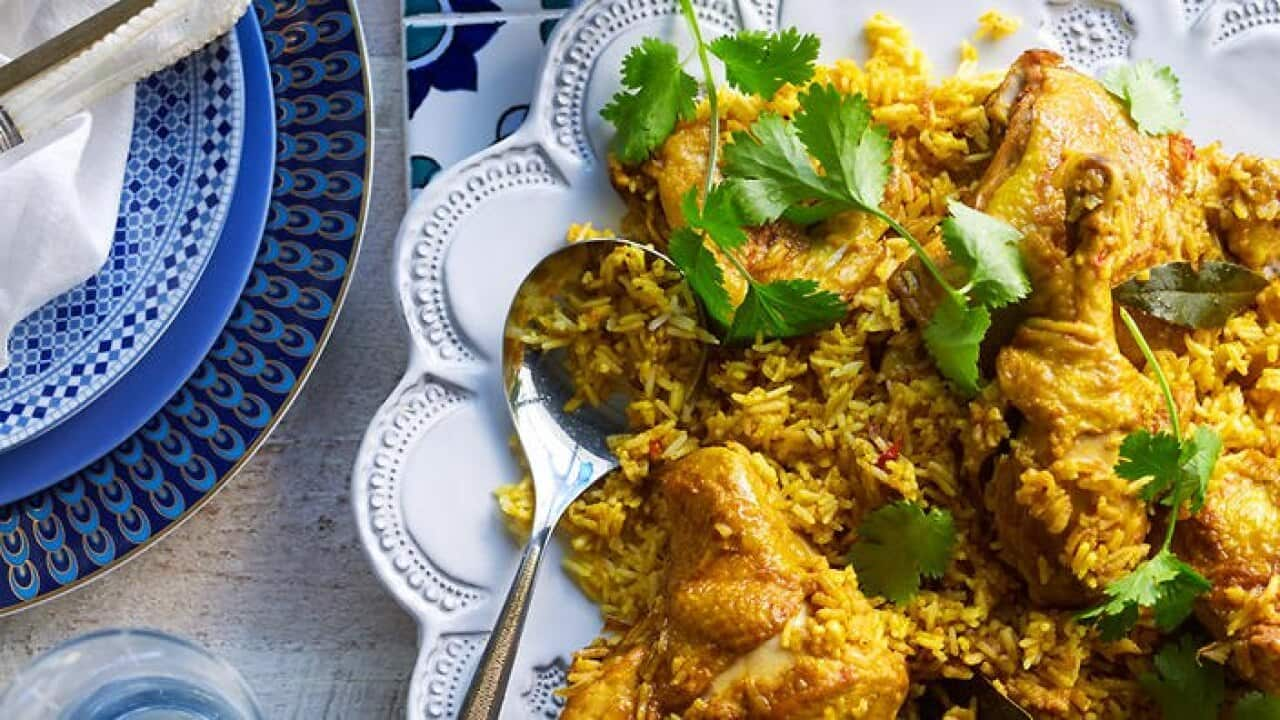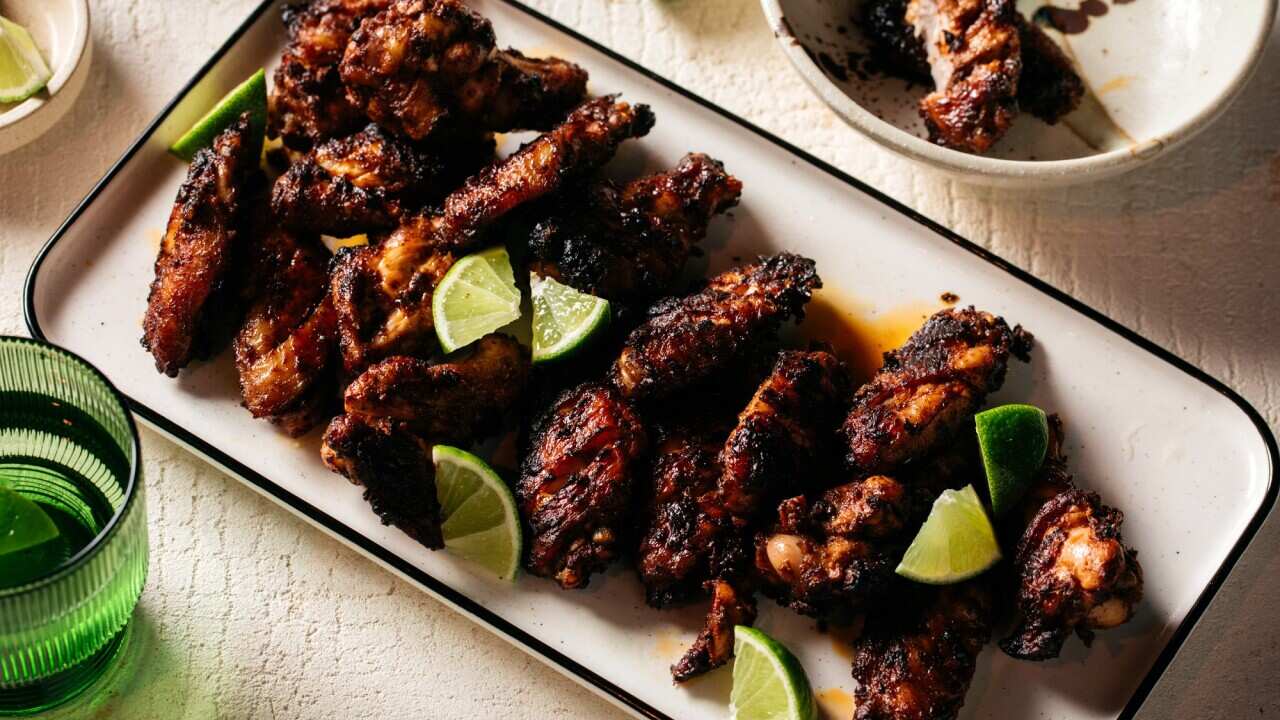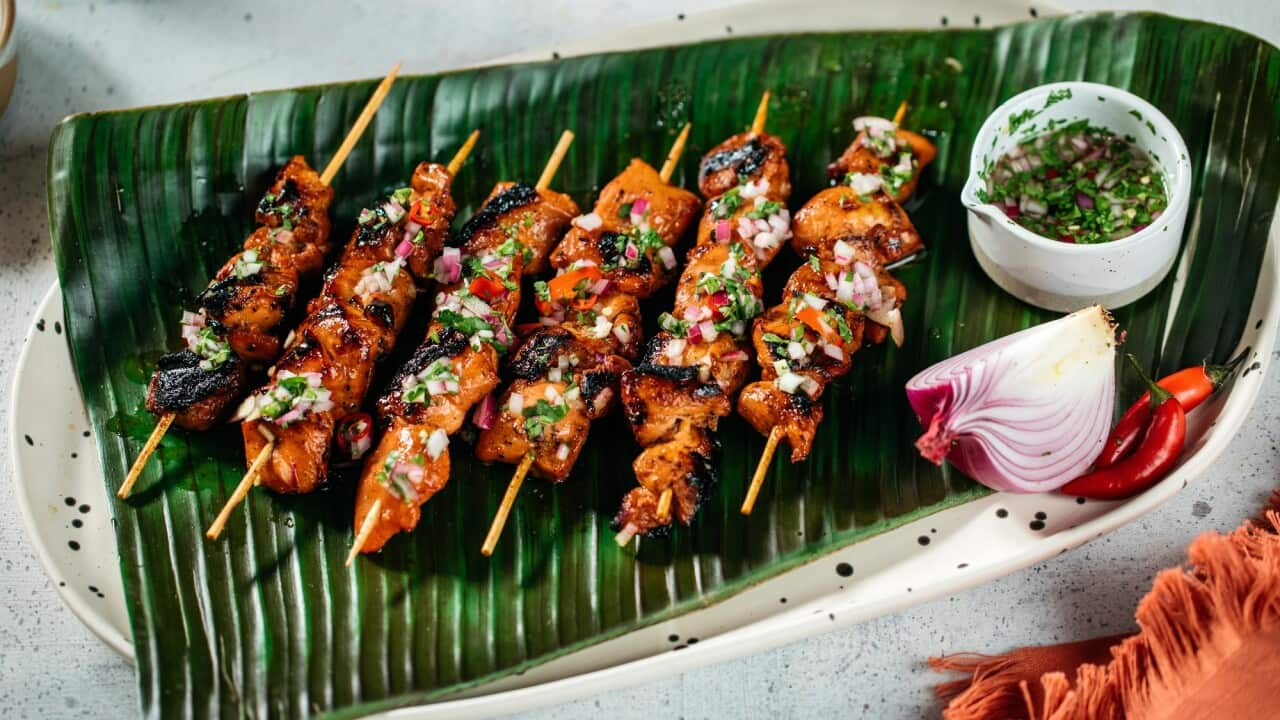"This is the first time our family is spending Ramadan together"
Ramadan might look a little different this year, but lockdown conditions have some silver linings for Maie Sufan and her family.
I arrived in Australia from Syria in 2006, but life has been very 'Australian' from the beginning. During Ramadan last year, everyone in my family was busy working long hours so we could never really sit down for iftar together during the week.
Because I would get home later, I would often take something easy out of the freezer and eat with my children, and then I would pray before heading to Lakemba's Ramadan Night Market where the charity I work for, Islamic Relief Australia, had a stall to raise money for projects.
I love volunteering my time at the stall because I know the donations we receive aren't about the money we made that day, but about how many families we can support and feed. The food aspect is nice, but Ramadan is about so much more. This year, it's easier. We're all working from home, but even though I'm busy with work I have time to prepare the food we love. For us, it's mostly about Syrian favourites, but I like to outsource where I can. For example, I'll buy vine leaves already rolled but I will cook it and add my finishing touches, and I'll buy kibbeh and add sides.
This year, it's easier. We're all working from home, but even though I'm busy with work I have time to prepare the food we love. For us, it's mostly about Syrian favourites, but I like to outsource where I can. For example, I'll buy vine leaves already rolled but I will cook it and add my finishing touches, and I'll buy kibbeh and add sides.

Maie Sufan says she enjoys the time her family have together during iftar. Source: Maie Sufan
It's nice preparing the meal and knowing we're finally going to have an opportunity to sit down as a family and break fast together. It's the first year I don't have people over (it's not unusual for there to be up to 24 people gathered in my home to eat at this time of year). But even though it's much quieter than usual, I believe we have a lot to be thankful for. There's no better time for reflection.
A DIFFERENT RAMADAN

Ramadan in the time of a global pandemic

Breaking fast is something different during COVID-19. Source: Maie Sufan
"My family uses this time to reconnect"
Despite the occasional feeling of loneliness this year, Anissa Mouti says flexible work arrangements are making fasting – and breaking fast – less tricky.
I was born to a Palestinian dad and an Australian mum. From the start of their marriage, my mother learned to make traditional food loved by Palestinians: lentils and rice, kofta and all the smoked dips, and of course, everyone would gather at our home for iftar.
I love the hive of activity that comes with Ramadan; the big weekend get-togethers, heading to the mosque to pray and visiting other people's homes to eat. Of course, everyone is nocturnal and even though eating huge amounts of food is not the purpose of Ramadan, you always end up having a big feast even after you insist you're not going to have a big feast. We're less than a week in but already Ramadan feels quite different this year. Obviously, with the social restrictions, you feel a little lonelier but what we're eating has remained the same.
We're less than a week in but already Ramadan feels quite different this year. Obviously, with the social restrictions, you feel a little lonelier but what we're eating has remained the same.

Anissa Mouti says Ramadan is a little easier this year albeit a little more lonely. Source: Anissa Mouti
We break our fast with dates which have an almond in the middle where the seed should be and crushed pistachios on top. Then it's soup, a couple of small entrees, and then we go into the barbequed meats and salads. Until this year, mum would cook the food and leave it on the table, and we'd all eat separately whenever we'd each come home from work. But now we have the opportunity to sit together as a family. It's quiet, but I'm appreciating it for what it is: a chance to reconnect with my family."

Anissa's family enjoys Palestinian food to break the fast. Source: Anissa Mouti
"We usually have an iftar roster"
For Ciğdem (who did not wish to disclose her full name for work-related reasons), Ramadan is normally a social occasion, but this year she is enjoying her first as part of a newly married couple.
For as long as I can remember, I've had an iftar calendar to keep track of social events during the month of Ramadan. Weeknights are fairly typical in that you come home late after work and eat with your immediate family, but weekends are social events where you break fast with loved ones.One night it might be dinner at your aunt's house followed by having your cousins over for iftar the following night. The weekend after, you might reserve the weekend to have iftar with close friends.
Last year, some girlfriends and I even went to an Italian restaurant. We had to choose a place we knew wouldn't bring alcohol to the table, and we called ahead to order and let them know we were breaking fast. They were very accommodating; they had the food ready as soon as we sat down.
Ramadan is quite different for me this year. Obviously, there are social distancing restrictions, but it's also my first one with my husband. Because we're newlyweds working from home, there's lovely energy in our home, and every iftar feels like a romantic meal every night. I don't know that the meals themselves are always traditional: last night I had the fully Turkish banquet which had everything from lentil soup, karnıyarık and pilav (an eggplant dish similar to imam bayıldı) and baklava, but tonight it's spag bol.
I don't know that the meals themselves are always traditional: last night I had the fully Turkish banquet which had everything from lentil soup, karnıyarık and pilav (an eggplant dish similar to imam bayıldı) and baklava, but tonight it's spag bol.

The delicious morsels to break the fast. Source: Ainsley's Market Menu
I was born in Australia to Turkish parents but my husband is from Turkey so he's like, 'No, you can't have spag bol for iftar!' I say, go with whatever works for you.
With the shorter days and the flexible work arrangements, this is probably the easiest Ramadan I've ever had. It's also the best.











